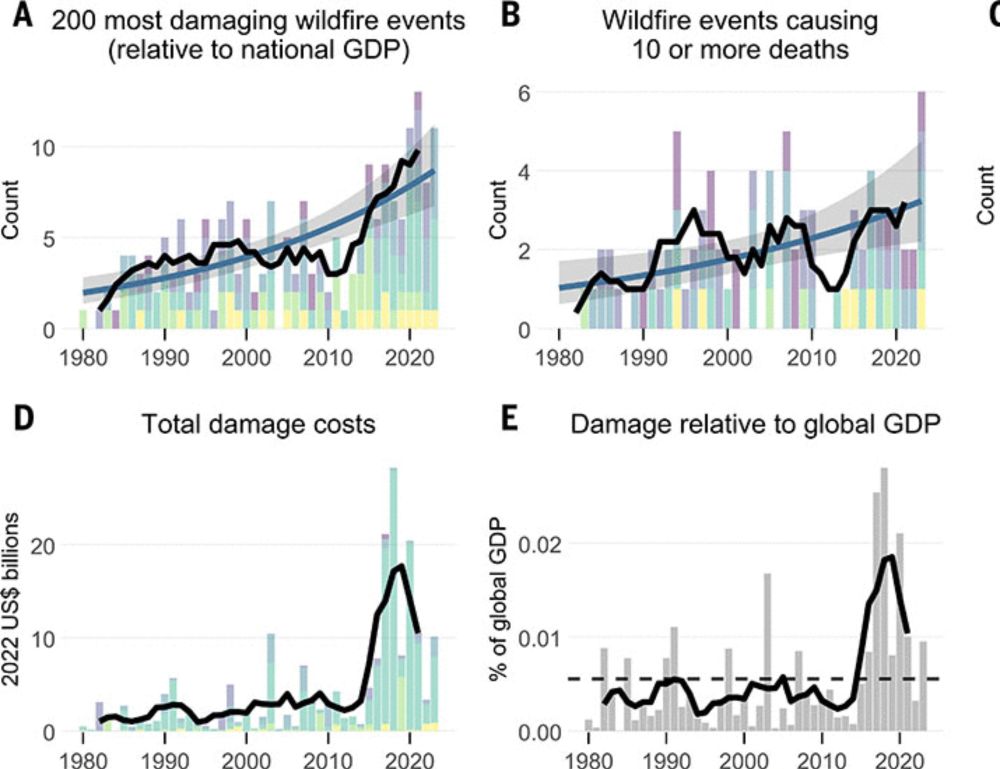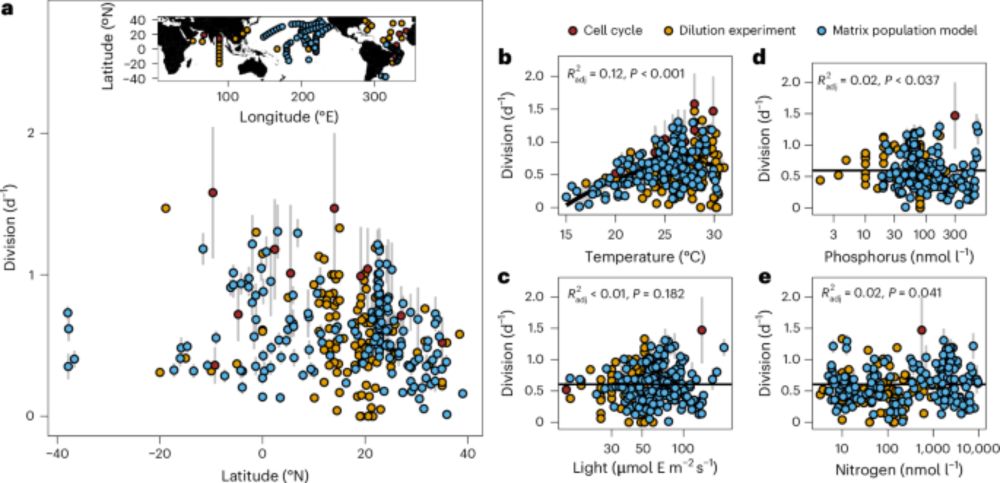

Environment-related risks can trigger sudden, cascading effects across sectors and borders. @ezhakala.bsky.social and @helmiraisanen.bsky.social explore environment-related risks as part of comprehensive security and discuss ways to prepare for them.
fiia.fi/en/publicati...

Environment-related risks can trigger sudden, cascading effects across sectors and borders. @ezhakala.bsky.social and @helmiraisanen.bsky.social explore environment-related risks as part of comprehensive security and discuss ways to prepare for them.
fiia.fi/en/publicati...
Climate scientists, fisheries experts, social researchers, and policy makers came together to discuss what an #AMOC weakening or collapse could mean for the Nordic region and the rest of the world.


Climate scientists, fisheries experts, social researchers, and policy makers came together to discuss what an #AMOC weakening or collapse could mean for the Nordic region and the rest of the world.
"Two iconic corals that have flourished across Florida’s 560-kilometre-long reef for more than 10,000 years are now ‘functionally extinct’ following the record-breaking 2023 heatwave." www.nature.com/articles/d41...

"Two iconic corals that have flourished across Florida’s 560-kilometre-long reef for more than 10,000 years are now ‘functionally extinct’ following the record-breaking 2023 heatwave." www.nature.com/articles/d41...

don’t capture the established key mechanism that can destabilize the North Atlantic subpolar gyre. Those models that get it predict abrupt subpolar gyre changes in coming decades 😳.
@swinda.bsky.social
esd.copernicus.org/articles/16/...

don’t capture the established key mechanism that can destabilize the North Atlantic subpolar gyre. Those models that get it predict abrupt subpolar gyre changes in coming decades 😳.
@swinda.bsky.social
esd.copernicus.org/articles/16/...

www.nature.com/articles/s41...

www.nature.com/articles/s41...




Silti Suomessakin elää yhä myytti siitä, että meillä ollaan ilmastotietoisia, muualla pöljäillään sokeasti menemään.

Silti Suomessakin elää yhä myytti siitä, että meillä ollaan ilmastotietoisia, muualla pöljäillään sokeasti menemään.
interactive.carbonbrief.org/factcheck/so...

www.worldweatherattribution.org/weather-cond...


Repeated heatwaves can age you as much as smoking or drinking www.nature.com/articles/d41...

Repeated heatwaves can age you as much as smoking or drinking www.nature.com/articles/d41...
"+1.5 °C is too high and that even current climate forcing (+1.2 °C), if sustained, is likely to generate several metres of sea-level rise over the coming centuries" www.nature.com/articles/s43...

"+1.5 °C is too high and that even current climate forcing (+1.2 °C), if sustained, is likely to generate several metres of sea-level rise over the coming centuries" www.nature.com/articles/s43...
Tarkennetulla mallilla toimeentulotuen saajamäärän lisäys on aiempia arvioita pienempi -> vaikutukset pienituloisuuteen ovat suurempia.
1/

Tarkennetulla mallilla toimeentulotuen saajamäärän lisäys on aiempia arvioita pienempi -> vaikutukset pienituloisuuteen ovat suurempia.
1/
Abram+
doi.org/10.1038/s415...
"The only assured way of reducing the risk of abrupt changes in the Antarctic environment is to make rapid and deep CO2 emission reductions this decade"

Abram+
doi.org/10.1038/s415...
"The only assured way of reducing the risk of abrupt changes in the Antarctic environment is to make rapid and deep CO2 emission reductions this decade"
Carbon sinks are turning into sources
We can’t expect nature to clean up our mess.

Carbon sinks are turning into sources
We can’t expect nature to clean up our mess.

onlinelibrary.wiley.com/doi/10.1111/...

onlinelibrary.wiley.com/doi/10.1111/...



